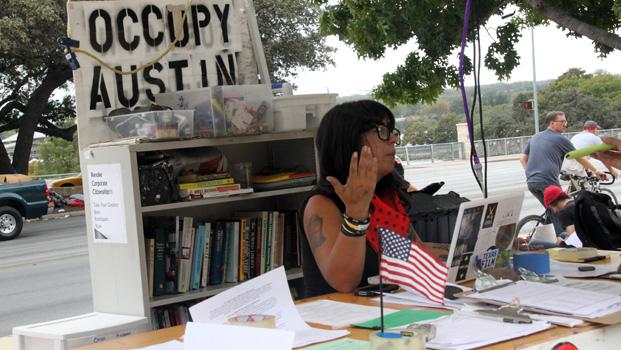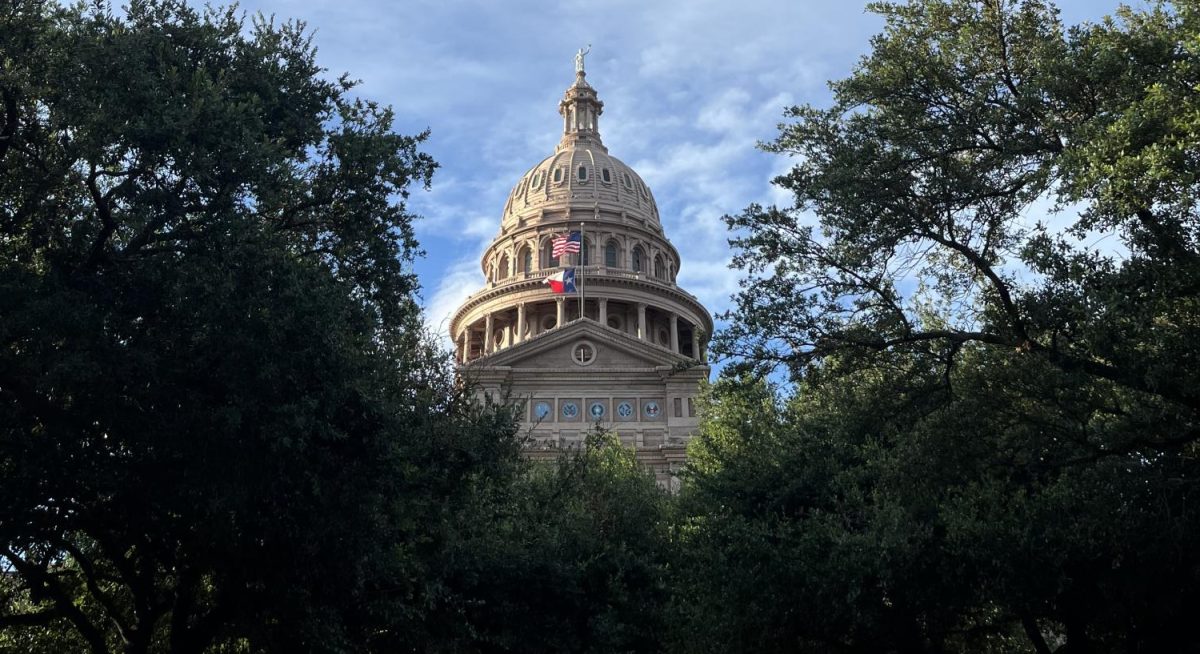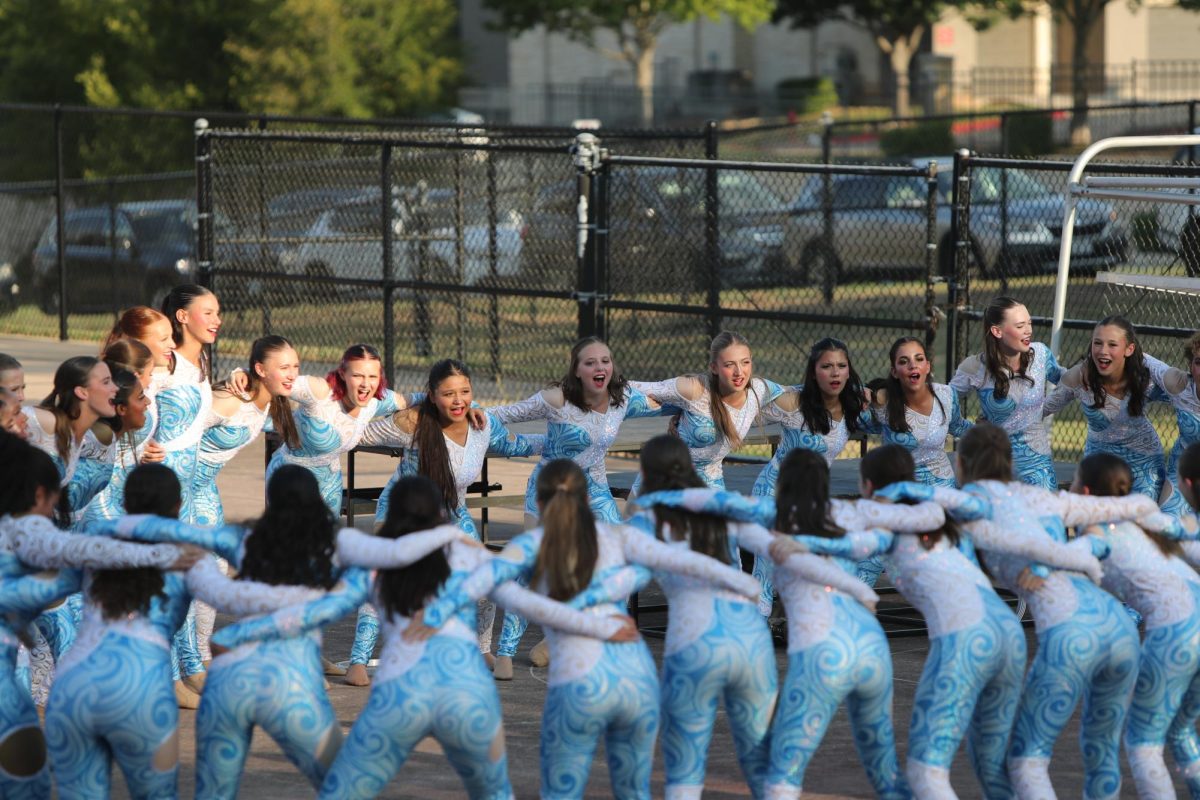Keep Austin Weird. This slogan was adopted by the Austin Independent Business Alliance in order to promote small, local businesses such as BookPeople and Waterloo Records. This slogan was proven effective when Civic Economics conducted a study that proved if customers spent $100 at Borders, only $13 would then get funneled into the Austin economy. However, if the same $100 are spent at a local bookstore, $45 would be funneled into the city’s economy. It is evident that Austin’s small businesses play a major role in the city’s economy. And it is the wish of the Occupy Wall Street protestors to protect the rights of those small businesses that fuel the local economy, and do not receive the same benefits as the powerful corporations.
The protestors have assembled in front of Austin City Hall since October 6th in hopes of capturing the attention of large corporations that are unjustly manipulating the economy through corporate greed and influence over the government. The 1% of America, composed of the wealthiest Americans and large corporations, engage in corrupt activities, yet continue to receive large salaries and tax bailouts by the government. The 99%, composed of students and small business owners, work diligently to become successful and receive no tax bailouts or benefits from the government.
After 38 arrests, seven weeks of confusing weather and no showers, Occupy Austin demonstrators continue the movement by camping outside of Austin City Hall. Occupy Austin organizer Michelle Milow is an active participant in the protest, and explains what the goal of the movement is for her.
“The banks do not have their origins here in the city. They take away money from citizens trying to keep money in the city,” Milow said. “We’re hoping to get a lot of people to pull their money out of the banks. The banks don’t know the community or the housing situation. We fall on hardships sometimes. We need flexibility, and they don’t give us that.”
Senior Justin Jania grew up in south Chicago, which is reputable for its high crime rate and challenging lifestyle. His family worked at steel mills, and he was raised in a union friendly environment that supports liberal ideologies. Because of his background, Jania participated in the Occupy Austin movement in hopes to contribute to the effort of increasing political awareness and support the movement’s goals.
“The atmosphere was really chill, people were a bit out there. Most of them were everyday people. There were lots of kids there, which was unexpected,” Jania said. “I hope to see some progress. There is always going to be monopolization of money, I just prefer more regulation.”
While Jania expects to see progress, and has devoted time into the protest, government teacher Coach Larremore does not expect to see results.
“There is a lot of frustration with corporate America and the economic state of the country which is what is driving the movement, but there is not enough leadership in the movement to accomplish anything,” Larremore said. “There is definitely all kinds of corporate greed and corruption and they exert an amazing amount of influence on the economy, I’m just not sure that the Occupy Wall Street movement is an effective way to address it.”
Whether it’s working or not, people are occupying over a hundred cities in America, and over 1,500 cities globally. This movement has gained a remarkable amount of publicity, and has sparked controversial topics that have motivated people to question the government.
“I didn’t vote for bailouts. I didn’t vote for my tax money to go towards CEO bonuses at Goldman Sachs Inc. I have no interest in any of that. I want my money to go towards schools, roads, public transit, bike lanes,” Milow said. “We need to get people to start doing something instead of being complacently putting their faith in a public official that could easily be bought into a public interest group. We need to start to get out of our houses and take care of each other.”














